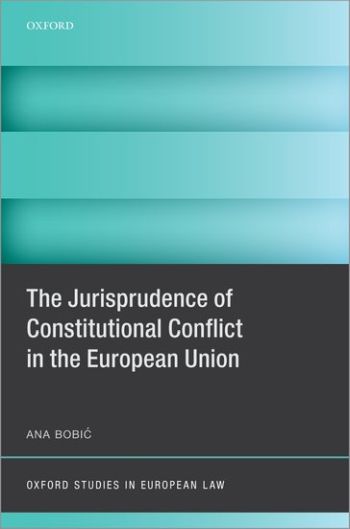
A comparative and comprehensive account of the jurisprudence of constitutional conflict between the Court of Justice and national courts with the power of constitutional review. This monograph addresses the incidences of, and reasons for, constitutional clashes in the application and enforcement of EU law. It aims to determine how the principle of primacy of EU law works in reality and whether the jurisprudence of the courts under analysis supports this concept. To this end, the book explores the three areas of constitutional conflict: ultra vires review, identity review, and fundamental rights review. The book substantiates the descriptive and strengthens the normative contributions of the theory of constitutional pluralism in relation to the web of relations in the European judicial space.
By examining the influence that the jurisprudence of constitutional conflict has on the balance of powers between the Court of Justice and constitutional courts, the volume develops the judicial triangle as an analytical tool that depicts the consequences for the horizontal (constitutional courts vis-à-vis the Court of Justice) and vertical judicial relationships (Court of Justice vis-à-vis ordinary national courts; constitutional courts vis-à-vis ordinary national courts).
By offering a thorough compilation of the jurisprudence of constitutional conflict in the EU, The Jurisprudence of Constitutional Conflict in the European Union improves our understanding of the principle of primacy of EU law and its limits, as well as reinforces the theory of constitutional pluralism in explaining and guiding judicial power relations and interactions in the EU.